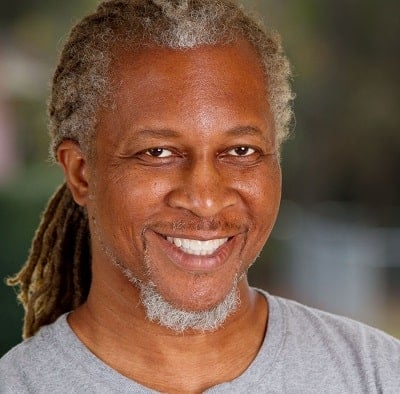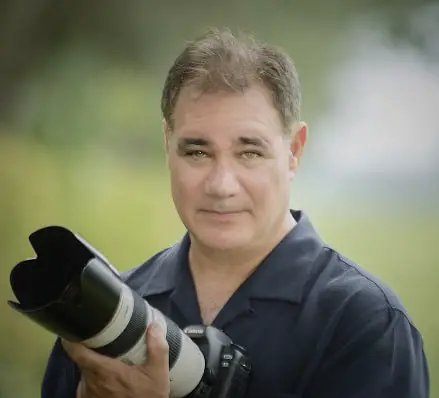Salary, Job Description, How To Become One, and Quiz
.jpg)
Photographers
Photographers photograph people, landscapes, merchandise, or other subjects. May use lighting equipment to enhance a subject's appearance. May use editing software to produce finished images and prints. Includes commercial and industrial photographers, scientific photographers, and photojournalists.
Table of contents
What they do
Photographers photograph people, landscapes, merchandise, or other subjects. May use lighting equipment to enhance a subject's appearance. May use editing software to produce finished images and prints. Includes commercial and industrial photographers, scientific photographers, and photojournalists.
- Use traditional or digital cameras, along with a variety of equipment, such as tripods, filters, and flash attachments.
- Determine desired images and picture composition, selecting and adjusting subjects, equipment, and lighting to achieve desired effects.
- Adjust apertures, shutter speeds, and camera focus according to a combination of factors, such as lighting, field depth, subject motion, film type, and film speed.
- Develop and print exposed film, using chemicals, touch-up tools, and developing and printing equipment.
Typical day
On a daily basis, Photographers use traditional or digital cameras, along with a variety of equipment, such as tripods, filters, and flash attachments. They determine desired images and picture composition, selecting and adjusting subjects, equipment, and lighting to achieve desired effects.
A typical day for a Photographer will also include:
- Determine project goals, locations, and equipment needs by studying assignments and consulting with clients or advertising staff.
- Review sets of photographs to select the best work.
- Create artificial light, using flashes and reflectors.
- Manipulate and enhance scanned or digital images to create desired effects, using computers and specialized software.
- Transfer photographs to computers for editing, archiving, and electronic transmission.
Other responsibilities
Besides their typical day, Photographers also engage in research to develop new photographic procedures and materials. They may also set up, mount, or install photographic equipment and cameras.
On a weekly to monthly basis, Photographers test equipment prior to use to ensure that it is in good working order. They might also select and assemble equipment and required background properties, according to subjects, materials, and conditions.
In addition, they direct activities of workers setting up photographic equipment.
Although specific duties may vary, many of them employ a variety of specialized photographic materials and techniques, including infrared and ultraviolet films, macro photography, photogrammetry, and sensitometry.
To some Photographers, it is also their responsibility to write photo captions.
What is the job like
Job satisfaction
Is this job meaningful
71% said they were satisfied with their job and 40% said they found their job meaningful.
I have owned a photography company for the past 15 years, and make my full time living as a wedding and portrait photographer. My Typical Day Working as a photographer is not all about taking photos. In fact, only about 10% of my week is spent taking photos. Here is a breakdown of how a … Read More
Each day varies depending on scheduled shoots or other events. A good portion of our work life includes travel to a location shoot, so preparation is key to ensure we don’t forget something important like a backup battery or SD card. The one consistent thing that has to occur everyday is reading emails and following … Read More
The types of photography that I do are primarily headshot portraits, business lifestyle photography, and high school seniors. My work life as a photographer This is a tricky one for sure! I don’t know if there is a typical day, but I will give you a couple of scenarios. Photo session day On a day … Read More
Working as a photographer can be an amazing gig if you are truly passionate about artistic expression through the medium. Whether you’re creating commercial photo and video to sell products or out in a field at sunset snapping some engagement photos, you’ll be happy with a camera in your hands as long as you are … Read More
A shoot day normally starts a day or 2 before the actual day of the shoot. I’ve normally spoken with the client and have an idea of how they want their images to look. I review the inspiration for the shoot they may have given me and if we are shooting on location, I do … Read More
I am a corporate headshot photographer based in NYC. My typical day It sounds cliche, but there are no typical days. On any given day I may be heading to a clients office to photograph the CEO, at a large firm photographing 20 new employees fresh out of college, dealing with individuals in the studio … Read More
I have been a professional photographer for over 30 years. I majored in Communications and Photographer at Adelphi University and graduated in 1985. After graduating I moved to Los Angeles because I wanted to learn from a few of my favorite famous photographers. Here is a piece of advice. You could work/learn from almost anyone … Read More
A typical day for a concert photographer is trying to sell your photos. Get art galleries to show your work. Get published and PAID for your photos. What’s more important in becoming a concert photographer is you’re going to have to LOVE music. Know everything about every band you’re about to see. You’re going to … Read More
I will have consultations with the parents before they schedule their newborn session to ensure that I’m the right choice for them and what they would like. Once they are committed to me and my studio, we go over all the details of the newborn session. I help the parents choose the photography props they’d … Read More
My sessions are usually at my client’s home. I go to them, set up my lights and backdrop if necessary, for the session. Prior to the day of the session, I have a consultation with the parents so that they know what to expect and how to prepare. The parents are always right there during … Read More
My Typical Day As an entrepreneur, I have some flexibility in creating my own work schedule. My typical day starts with getting my children fed and prepared for the day. While they eat I get myself ready and then we spend some time playing and reading until our childcare provider arrives at 9am. If it’s … Read More
My typical day starts with a leisurely breakfast and walking my golden retriever, Murphy. I’m not a morning person so being self-employed means I’m able to structure my day so I can work on creative tasks later when I’m naturally more productive. My walks with Murphy double as location scouting for upcoming photoshoots. Even if … Read More
Pros
Suitable for people who like to work with designs.
Suitable for people who want independence and like to work on their own and make decisions.
It is not too difficult to get into this career. Previous work-related skill, knowledge, or experience is required to get started.
Demand for this career is growing.
Cons
Not suitable for people who like to follow routines.
Salary is below average.
Long working hours (More than 40 hours per week).
How much do they make
Average salary
Average hourly wage
Entry-level Photographers with little to no experience can expect to make anywhere between $22,410 to $28,530 per year or $11 to $14 per hour.
| Salary by experience | Annual | Hourly |
|---|---|---|
| Highest (Top 10%) | $86,850 | $42 |
| Senior (Top 25%) | $62,440 | $30 |
| Median | $41,280 | $20 |
| Junior (Bottom 25%) | $28,530 | $14 |
| No experience (Bottom 10%) | $22,410 | $11 |
This table shows the top 10 highest paying industries for Photographers based on their average annual salary.
| Salary by industry | Annual | Hourly |
|---|---|---|
| Aerospace Product and Parts Manufacturing | $91830 | $44.15 |
| Advertising, Public Relations, and Related Services | $79060 | $38.01 |
| Motion Picture and Video Industries | $78470 | $37.73 |
| Other Information Services | $77610 | $37.31 |
| Employment Services | $70710 | $33.99 |
| Local Government | $67680 | $32.54 |
| Nonscheduled Air Transportation | $66320 | $31.88 |
| Management of Companies and Enterprises | $64000 | $30.77 |
| General Medical and Surgical Hospitals | $63680 | $30.62 |
| Merchant Wholesalers, Nondurable Goods | $61400 | $29.52 |
View more salary by industries here.
Where can they work
Where can Photographers work? Here is a table showing the top 10 largest employers of Photographers including the average salary in that industry.
| Employers | Total Employed | Annual Salary | Hourly Wages |
|---|---|---|---|
| Other Professional, Scientific, and Technical Services | 21690 | $46050 | $22.14 |
| Radio and Television Broadcasting | 3740 | $54910 | $26.40 |
| Newspaper, Periodical, Book, and Directory Publishers | 1710 | $56080 | $26.96 |
| Motion Picture and Video Industries | 1570 | $78470 | $37.73 |
| Electronic Shopping and Mail-Order Houses | 1120 | $49640 | $23.87 |
| Automobile Dealers | 900 | $39310 | $18.90 |
| Management of Companies and Enterprises | 810 | $64000 | $30.77 |
| Independent Artists, Writers, and Performers | 790 | $49030 | $23.57 |
| Colleges, Universities, and Professional Schools | 680 | $52490 | $25.24 |
| Amusement Parks and Arcades | 540 | $26610 | $12.79 |
What is the work day like
Working hours
Working schedule
How often do you use email in this job?
Telephone
How often do you have telephone conversations in this job?
Group discussions
How often do you have group discussions in this job?
Public speaking
How often does this job require you to do public speaking?
Level of competition
How much competitive pressure is in this job?
What is the work environment like
Office-style environment
Indoors in an environmentally controlled condition
Warehouse-style environment
Indoors in a non-controlled environmental condition such as a warehouse
Outdoors
Outdoors exposed to all weather conditions
Outdoors – Under Cover
Outdoors but under cover (e.g. structure with roof but no walls)
How to become one
Difficulty to become one
Required level of education
What level of education do you need to perform the job?
Relevant majors
Photography
Art/Art Studies
Visual and Performing Arts
Digital Arts
Commercial Photography
Photojournalism
Relevant work experience
How much related work experience do you need to get hired for the job?
On The Job Training
How much on the job training do you need to perform the job?
Should you become one
Best personality type for this career
People with this personality likes to work with designs and patterns. They prefer activities that require self-expression and prefer work that can be done without following a clear set of rules.
People with The Builder personality type likes practical and hands-on work. They prefer working with plants, animals, and real-world materials like wood, tools, and machinery.
People with The Thinker personality likes to work with ideas that require an extensive amount of thinking. They prefer work that requires them to solve problems mentally.
People with The Artist personality likes to work with designs and patterns. They prefer activities that require self-expression and prefer work that can be done without following a clear set of rules.
People with The Helper personality type likes to work with people and in teams. They prefer work that allows them to build relationships with others.
People with The Leader personality likes to start and work on projects. They also like leading people and making many decisions.
People with The Organizer personality type likes to follow set procedures and routines. They prefer working with data and details more than with ideas.
You can read more about these career personality types here.
People who are suitable for this job tend to like working with forms, designs, and patterns. They often require self-expression and the work can be done without following a clear set of rules.
They also like work activities that include practical, hands-on problems and solutions. They like working with plants, animals, and real-world materials like wood, tools, and machinery.
Take this quiz to see if this is the right career for you.
Work Values
Which values are the most important to a person’s satisfaction for this job?
You are someone who is results oriented. You prefer work that allows you to utilize your skills and abilities while at the same time giving you a sense of accomplishment.
You are someone who values job security, steady employment, and good working conditions. You also prefer work that keeps you busy all the time with something different to do every day.
You are someone who values job advancement and leadership roles. You prefer work that receives recognition for the work you do and jobs that are looked up to by others in the company and your community.
You are someone who likes to provide a service to others. You prefer a work environment where you can work with your co-workers in a friendly non-competitive environment.
You are someone who values a company that stands behind their employees. You prefer a work environment where everyone is treated fairly and is being supported by the company.
You are someone who likes to work on your own and make your own decisions. You prefer work that requires little supervision and are allowed to try out your own ideas.
Don’t know which career to pursue?
Take the career quiz to find careers that match your personality type.
Take The Career Quiz









.jpg)




.jpg)
.jpg)
.jpg)
.jpg)
.jpg)
.jpg)
.jpg)
.jpg)
